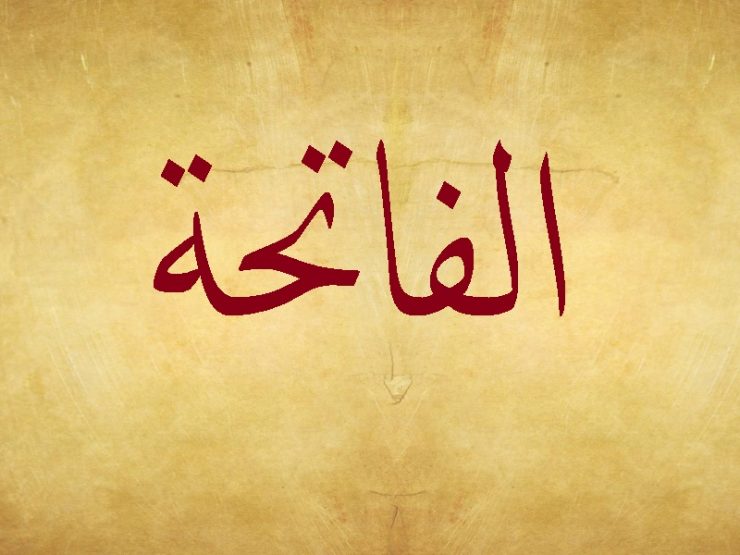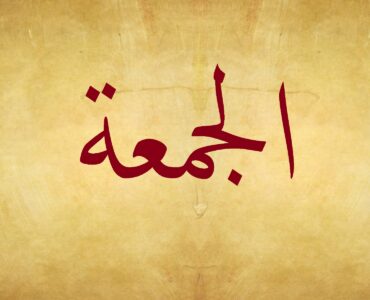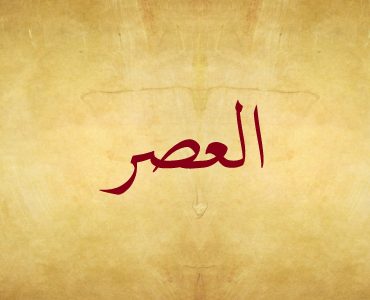| 001. Chapter The Opening / Surah al- Fatiha[1] |
بسم الله الرحمن الرحيم{1}
- In the name of God, The Most Gracious, The Most Beneficent [2]
الْحَمْدُ للّهِ رَبِّ الْعَالَمِينَ {2}
2. It is God only- Who does everything perfectly [3]. He is the Master of all beings [4].
الرَّحْمـنِ الرَّحِيمِ {3}
- He is The Most Gracious, The Most Beneficent,
مَـلِكِ يَوْمِ الدِّينِ {4}
- He is the sovereign of the Day of Requital[5].
إِيَّاكَ نَعْبُدُ وإِيَّاكَ نَسْتَعِينُ{5}
- (Oh, God!) You directly we worship, and You directly we ask for help.
اهدِنَــــا الصِّرَاطَ المُستَقِيمَ {6}
- Admit us to the straight path[6],
صِرَاطَ الَّذِينَ أَنعَمتَ عَلَيهِمْ. غَيرِ المَغضُوبِ عَلَيهِمْ وَلاَ الضَّالِّينَ {7}
- the path of those upon whom you have bestowed happiness[7], the path of those who have not incurred Your wrath and not gone astray. (Amen)
[1] Sent down to prophet (nabi) Muhammad (pbuh) in Mecca and consisting of seven verses. A verse pointing to this chapter is: “We have granted you seven of those pairs (mathani), (which are) the great quran (chapter Fatiha)” (al-Hijr 15:87). “Mathani = مثَانِي” is the plural form of “mathna = مثَنى” and means “pairs”. Quran comprises muhkam (decisive) verses, and mutashabih (similar) verses which explain the muhkam verses by giving further details about them. There is a dual relationship between decisive and similar verses. The Arabic word indicating this relation is mathani. Fatiha means “opening”. Since the chapter Fatiha, which is “The Opening” of the Quran, is in dual relation with all other verses, it is a summary of the whole Book. All other verses are explanations for this chapter.
[2] The words “ar-Rahmaan = الرحمن” and “ar-Raheem = الرحيم” in the expression “Bismi Allahi alrrahmani alrraheemi” are both derived from the same root as “rahmat = رحمة”. “Rahmat” is “grace that bestows beneficence and boons”. When used as an attribute of God, the term refers only to “beneficence and boons” (Mufradat, art. رحم). We have translated “rahmat” as “grace” in regard to the following meanings of the word grace: “goodwill or favor, or an expression of favor, esp. by a superior” (wordreference.com).
“Ar-Rahman” is “the One Whose grace embraces everything”. Because this attribute belongs exclusively to God, the word “ar-Rahman” has been translated as “The Most Gracious”.
The word “raheem = رحيم” means, “somebody who has abundant grace (rahmat)”. It is a derivative of the word “rahm = رحم” which means “mother’s womb” in Arabic. A mother’s womb is the most convenient place for an embryo to have its needs met. God confers several benefits on humans, just as a mother’s womb does on an embryo. Other people, besides God, may also have this quality. The adjective “raheem” is used in the Quran while referring to Messenger Muhammad (pbuh). The Almighty God commands: “Indeed, there has come to you a messenger from among yourselves. He is concerned over your suffering, and is fond of you. Towards the believers, he is compassionate and beneficent” (at-Tawba 9:128). “Beneficent” means “one who confers benefits” (dictionary.com). Therefore, the word “ar-Raheem” has been translated as “The Most Beneficent”.
[3] There are three types of praise in Arabic literature. They are: compliment = madih; praise = hamd; thanksgiving = shukr. The first is “to praise someone for something which is obtained effortlessly (ex: she is smart, beautiful, tall)”. Second is “to praise someone for something which they do very well (ex: she is a good friend, professional cook, the best of the singers)”. And lastly, “to praise someone for something done especially for you (ex: thank you for your help)”. We can do some things very well, but God does everything perfectly. The prefix “al” at the beginning of the expression “al-hamdu” makes the word “hamd = praise” a generic noun, making the meaning: “all of the hamd”. The word “lillah” means “belongs to God”. Since the meaning of “hamd” is “praising someone because of something they did well or perfectly”, the meaning of “Al-hamdu lillah” becomes: “Doing everything perfectly is exclusive to God only.” To strengthen the emphasis and the rhyme in this sentence, we have favored this translation: “It is God only who does everything perfectly”.
[4] The word “Rabb = رب” can be translated correctly as “owner”. A homeowner is called “rabb ad-daar” (Arabic Lit.), whereas an owner of capital is called “rabb al-maal”. The word rabb also includes the meanings “who brings up” and “who teaches”. Considering these, the best match for “rabb” in English is “master”. In the following verse, the word Rabb is used both for the king who owns the slave, and for God. Joseph had said to the messenger sent by the king: “Return to your master and ask him what is the case of the women who scratched their hands. Indeed, my Master is knowing of their plan.” (Joseph 12:50) This proves that our choice for the translation of this word is right.
[5] “Yawm al-deen = يَوْمِ الدِّينِ” is commonly translated as “Day of Judgement”. However the word “deen = دٖين” is derived from the root “dayn = دين” which has the meanings “tradition”, “situation”, “punishment”, “requital” and “obedience” (as-Sihah). The meanings “obedience” and “requital” are prominent. In religion, it is God who people obey. His commands are followed, and His requital is expected. Day of Requital is the day on which everyone will be accounted for that which they have done in the worldly life.
[6] “Al-huda/al-hidayat = الهُدٰى/الهداية” means “the right path/getting on the right path” when a human being is the subject. It also means “to admit somebody to the right path” when God is the subject. “Dalalat = ضلالة” means “going astray whether on purpose or not”, “getting lost”, “losing something”, “going off the target”.
[7] Whoever obeys God and the Messenger (who communicates the Message of God) will be together with those upon whom God has bestowed happiness among the prophets (the nabi), the sincere, the martyrs and the righteous. Excellent they are as companions! (An-Nisa 4:69)







Add comment